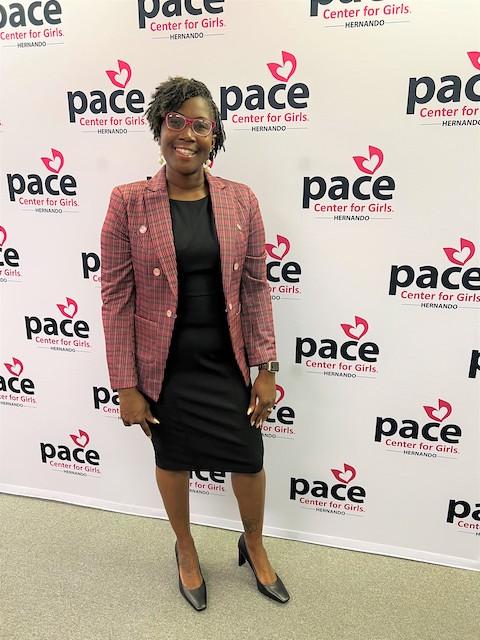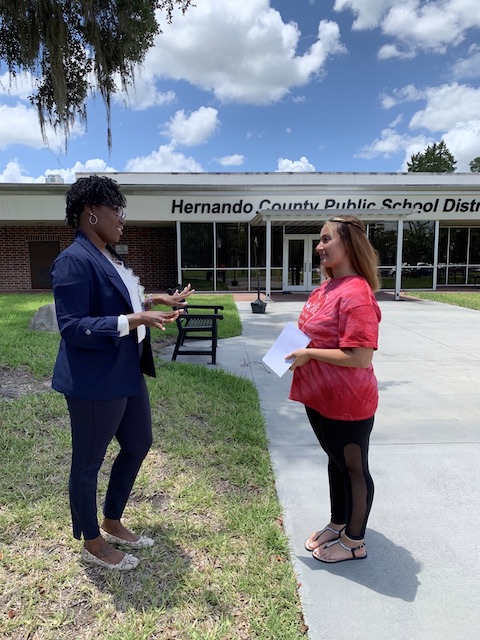DrPH student makes “at-promise” adolescent girls her “population of choice”
When Xonjenese Jacobs, a USF College of Public Health DrPH student, got her BSW degree, she knew she wanted to make at-promise adolescent girls her “population of choice.”
She now serves as the executive director of the Pace Center for Girls, Hernando, a position she was appointed to in July.

Pace Center for Girls is a national nonprofit with 23 communities in Florida, Georgia and South Carolina. The organization provides girls and young women an opportunity for a better future through education, training and advocacy.
“Girls are the future and deserve an opportunity for success independent of where they find themselves in the present,” Jacobs said. “The work that Pace does is life changing through a girl-focused, multidisciplinary, gender-responsive, trauma-informed, strength-based approach. I have seen girls overcome significant barriers to reach goals that they have never thought to be attainable.”
As executive director, Jacobs is responsible for leadership, advocacy, budgeting, board governance and program operations directly associated with the Pace-Hernando, located in Spring Hill.

The center offers a day program, where girls receive year-round school and services at no cost, personal guidance, counseling and career/college prep. They also have what they call a “Reach” program, which provides individual, peer-group and family therapy, individual goal setting, coping skills and other services to identified girls at schools in Hernando County.
And that mental health aspect is key to Pace’s success, says Jacobs.
“Education in and of itself is the gateway to success,” Jacobs explained. “But positive mental health outcomes influence the quality of life a girl may have for the better. By providing these girls with a solid foundation in the intellectual and emotional domains, we cultivate tools of resilience within them. We provide them with the necessary blueprint for how to navigate systems when they identify future challenges for not only themselves but their families.”
Jacobs, who previously was associate director of program performance for the Pace national office, credits her DrPH training with helping her lead Pace-Hernando.
“Being in the DrPH Program has strengthened my understanding of how diverse systems collaborate to influence health outcomes for the population as a whole,” she said. “With this knowledge, I am intentional about the community partnerships that we cultivate at Pace- Hernando to ensure we are connecting girls and their families to resources in each domain of optimal health.”
Jacobs plans on staying with Pace-Hernando after she earns her DrPH degree.
“My intention is to continue to serve as the executive director of Pace-Hernando while continuing to educate the community at large about the lived experiences of minority populations as it concerns mental health,” she said. “I feel fortunate to be a part of an entity that shifts the trajectory of girls’ lives for the better.”
Story by Donna Campisano, USF College of Public Health
